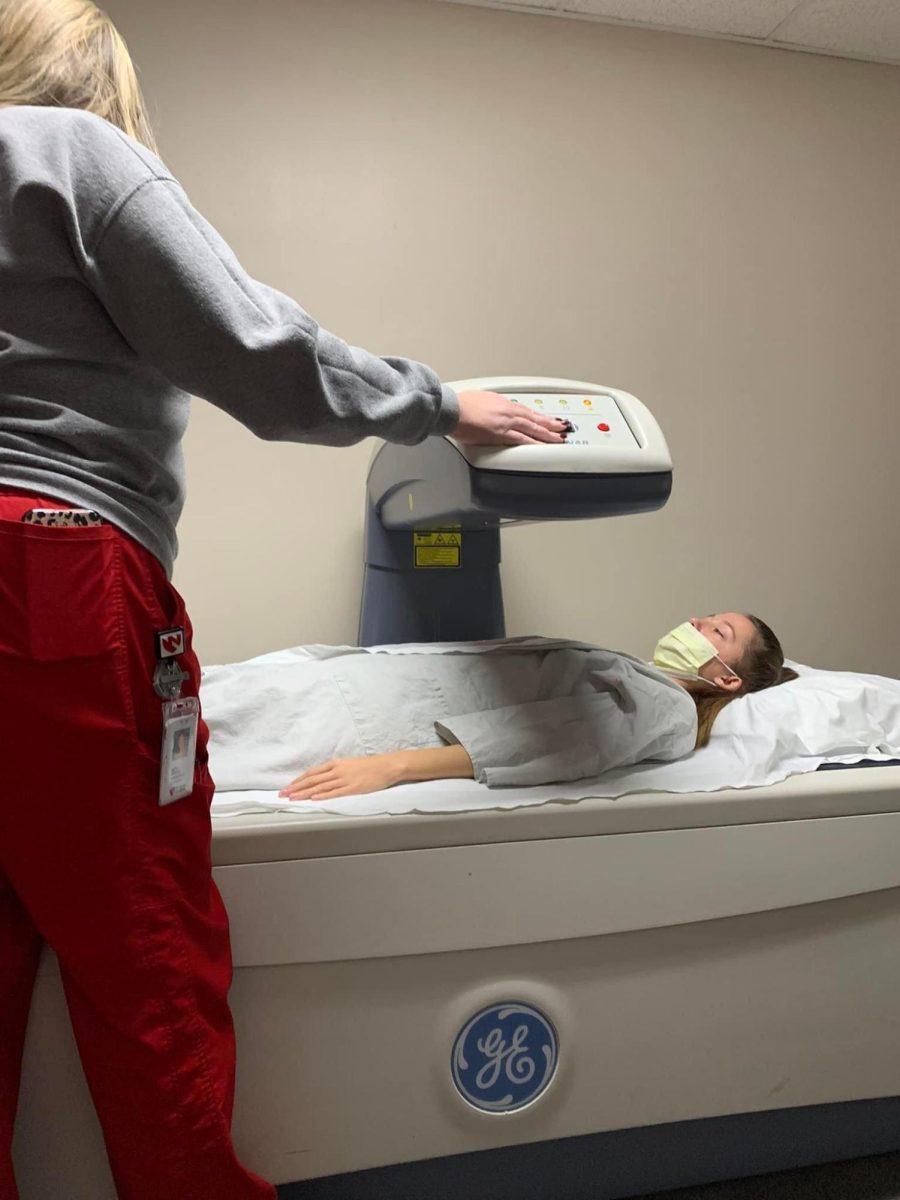
Since the Covid-19 pandemic, mental health care has been crucial within schools. However, some schools are unable to provide adequate help for students due to a lack of resources and funding. There has always been a need for mental health care services within high schools and universities.
Abby Crow, a previous student from CCA who graduated in the spring of 2019, has been advocating for mental health funding within universities since she was appointed a role on the Board of Regents in May of 2021. Crow describes what the Board of Regents is: “The Board of Regents is a group of nine citizen volunteers from across the state of Iowa who aid in policymaking, strategic planning, and oversight of the state’s three public universities (the University of Iowa, the University of Northern Iowa, and Iowa State University).”
Crow graduated from the University of Iowa earlier this May with a Bachelor of Science in Human Physiology, a Minor in Biology, and a Certificate in Leadership Studies. She’s taking a gap year as she applies to Physician Assistant schools. She has two jobs, one as a CNA at the University of Iowa Hospitals and Clinics and another at a bar in downtown Iowa City. Crow has many roles within the community and university. She goes on to describe the desperate need for mental health care, “In some of my roles as a Resident Assistant, a member of Iowa’s Undergraduate Student Government, and even as a CNA at UIHC, I’ve seen how critical the mental health needs of college students are.” She continues to talk about how mental health funding is important, “We all have enough to worry about academically as college students, and I think having abundant resources for individuals to use if they find themselves needing help is an important and tangible way to impact their lives for the better.”
Although there may not be a large lack of mental health funding at the university level, there are still ways more resources can be provided. Crow describes more opportunities that should be available, “I wouldn’t say that there is a large lack of mental health funding at the university level… However, I would say there are opportunities to provide additional needed support and expanded services with increased mental health funding. By having additional mental health funding, we can ideally make these services more robust, more accessible, and more individualized for students.”
Since Crow is a part of the Board of Regents, she has to voice the concerns of students throughout the universities, “Truthfully, I see my role as a Regent to be a liaison, where I can seamlessly communicate ideas/concerns delivered by student leaders to my fellow regents and university administrations to develop a solution.” Crow says, “In my two and a half years as a Regent, every set of undergraduate and graduate student government leaders at UI, ISU, and UNI have told us about the need for expanded mental health services on their campuses to meet the growing demand for these resources. I see it as my duty to support their voices and do what I can to advocate for their concerns, which is why I asked to add an additional $1 million to the Board’s State Appropriations Request for this year.” Crow and student leaders at UI, ISU, and UNI are working with administrative leaders to pinpoint areas of need within each school where one-time mental health funding could be the most impactful. They are trying to set up a meeting with Governor Reynolds sometime this winter to discuss these details and benefits as well.
Crow’s job at the UIHC has opened her eyes to how early mental health intervention is important, and how she wants to give college students access to mental health care, “In the course of my job at UIHC, I sometimes sit 1:1 with individuals who are at risk for harming themselves… I’ve sat with over 100 individuals in this capacity since I started working at the hospital 3 years ago, and every time I do, it breaks my heart to see people who feel that their struggles are so difficult that they want to harm themselves. As a future healthcare provider, I recognize the importance of providing early mental health interventions so people don’t feel like they need to take extreme measures as a last resort.” Crow continues to talk about the hopes of getting more funding for mental health care within universities, “My hope is that with additional funding for our regent universities, we can offer these services in a more accessible way for our students so they have more tools to cope with mental health stressors that they can carry through life, so they might never end up in the Emergency Department in the first place.
At CCA there are a variety of resources provided for students to help with their mental health. Such as counseling support throughout all K-12 buildings and school-based therapy for free. Myleena Grenis is the current school therapist who works in both the middle school and high school. Although funding for mental health care isn’t an issue for CCA, could there be more resources available for students? Grenis says, “I would like to see more funding for an additional counselor in each of the secondary buildings,” This would include the middle school and high school, she continues, “I would also like to see funding for specific community-wide events to show films in support of Mental Health Awareness to continue efforts to de-stigmatize mental health and promote suicide prevention efforts.”
Students are encouraged to reach out to counselors if they are struggling or need help with their mental health. Grenis talks about the current resources available for students in need of mental health care, “(Students) can reach out directly to their building counselors and request support or tell any teacher they would like help with making the connection. Help is different for each individual. Some may want time to regularly meet to expand their coping toolbox, others may want support on an acute basis and some may want outside service referrals. The building school counselors are an excellent navigator of all of these services.” There are a variety of resources currently available for students at CCA to use if they need them.
It is important to have mental health support and care available in schools. Regardless if it is at a high school, middle school, elementary, or university level. Additional funding at public state universities could deeply impact the student body and allow for further resources and support for students. Additional funding for mental health care at CCA could give students access to a more broad variety of resources and support systems. Mental health care is important to obtain and not to overlook, it’s a necessary resource that should always be available for every student body.




